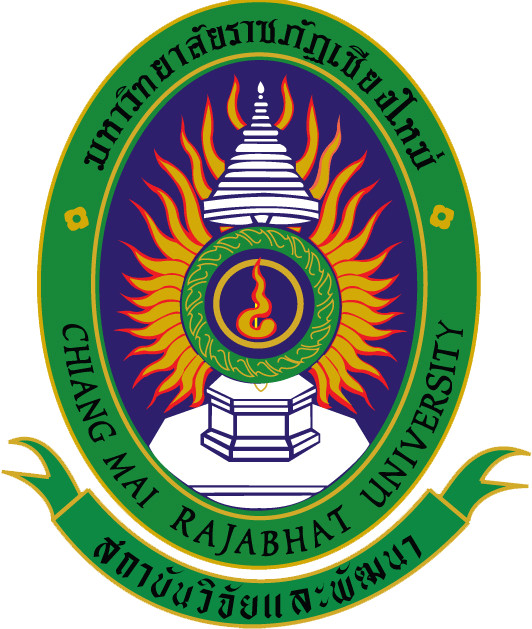
ระบบสารสนเทศงานวิจัย สถาบันวิจัยและพัฒนา มหาวิทยาลัยราชภัฏเชียงใหม่
Research Information System(RIS)
ระบบเทคโนโลยีดิจิทัลด้านสุขภาวะในการเฝ้าระวังโรคไม่ติดต่อเรื้อรังของผู้สูงวัยกลุ่มชาติพันธุ์ในภาคเหนือตอนบน
ผู้ช่วยศาสตราจารย์ ดร.ชนินทร์ มหัทธนชัย
คณะวิทยาศาสตร์และเทคโนโลยี
เลขทะเบียน :
1347-63-SCI-TSRI
บทคัดย่อ
การวิจัยเรื่อง “ระบบเทคโนโลยีดิจิทัลด้านสุขภาวะในการเฝ้าระวังโรคไม่ติดต่อเรื้อรังของ
ผู้สูงวัยกลุ่มชาติพันธุ์ในภาคเหนือตอนบน” มีวัตถุประสงค์ 1) เพื่อศึกษาบริบทและปัจจัยพื้นฐาน
ในการส่งผลด้านสุขภาพของผู้สูงวัยกลุ่มชาติพันธุ์ในภาคเหนือตอนบน 2) เพื่อพัฒนาระบบเทคโนโลยีดิจิทัลในการเฝ้าระวังโรคไม่ติดต่อเรื้อรังสำหรับผู้สูงวัยกลุ่มชาติพันธุ์ในภาคเหนือตอนบน
3) เพื่อถ่ายทอดองค์ความรู้ด้านโภชนาการและเทคโนโลยีดิจิทัลในการเฝ้าระวังโรคไม่ติดต่อเรื้อรัง
ในการวิจัยนี้ ผู้วิจัยได้ศึกษาข้อมูลเบื้องต้นจากกลุ่มเจ้าหน้าที่สาธารณสุข โดยเลือกกลุ่มตัวอย่างแบบเฉพาะเจาะจง กลุ่มภาคีเครือข่าย (จนท.สส. อบต. อปท. ครู พระภิกษุ ผู้นำชุมชน อสม.) จำนวน 3 กลุ่มมาเป็นกรณีศึกษา คือ 1. กลุ่มชาติพันธุ์กะเหรี่ยง เป็นกลุ่มชาติพันธุ์ที่สืบทอดกันมานานและยังมีวัฒนธรรมต่าง ๆ เช่น การปรุงอาหาร การรับประทานอาหาร การหาอาหาร พฤติกรรมการดูแลตนเอง 2. กลุ่มชาติพันธุ์ม้ง บ้านแม่สาน้อย ตำบลโป่งแยง อำเภอแม่ริม จังหวัดเชียงใหม่ มีวิถีชีวิตที่น่าสนใจและการกินอาหารและอาหารพื้นบ้านที่แตกต่างกันไป 3. กลุ่มชาติพันธุ์อื่น ๆ เป็นต้น โดยเลือกกลุ่มตัวอย่างแบบเฉพาะเจาะจง เจาะจงในการเลือกกลุ่มที่รับประทานอาหารที่มีรสเค็มจัด หรือหวานจัด ทำให้สุขภาพร่างกายไม่ค่อยแข็งแรงเป็นต้น
ผลการศึกษาด้านบริบทและปัจจัยพื้นฐานในการส่งผลด้านสุขภาพของผู้สูงวัยกลุ่มชาติพันธ์ พบว่าชาวบ้านในพี้นที่ส่วนมาก ปรุงแต่งอาหารตามความชอบของแต่ละคน มีการปรุงอาหารที่ค่อนข้างรสจัด มีสิ่งแปลกปลอมเช่นผงชูรส วัตถุปรุงแต่งรสอาหารในปริมาณสูง ผู้วิจัยได้ทำการพัฒนาระบบเทคโนโลยีดิจิทัลในการเฝ้าระวังโรคไม่ติดต่อเรื้อรัง โดยใช้เครื่องมือดังต่อไปนี้คือ แผนผังบริบท (Context Diagram) แผนผังDecomposition Diagram และแผนผังกระแสข้อมูลระดับที่ 0 (Data Flow Diagram (Level 0)) ในการวิเคราะห์ระบบ โดยนำข้อมูลที่ได้จากการวิเคราะห์มาสร้างรูปแบบเทคโนโลยีดิจิทัลดิจิทัลเพื่อช่วยในการเฝ้าระวังโรคไม่ติดต่อเรื้อรังผู้สูงวัยกลุ่มชาติพันธุ์ บอกวิธีการปรุงให้ความเหมาะสมกับร่างกาย นำองค์ความรู้ที่มีความเฉพาะของชุมชนกลุ่มผู้สูงวัยกลุ่มชาติพันธุ์ในภาคเหนือตอนบน มาสังเคราะห์องค์ความรู้ด้านโภชนาการที่ช่วยชะลอการเกิดขึ้นของโรคไม่ติดต่อเรื้อรังในผู้สูงวัย และพัฒนาระบบเทคโนโลยีดิจิทัลในการเฝ้าระวังโรคไม่ติดต่อเรื้อรังให้เหมาะสมสำหรับผู้สูงวัยกลุ่มชาติพันธุ์ในภาคเหนือตอนบนได้ โดยสามารถเข้าใช้งานได้จาก URL : https://ncd.cmru63.com จะพบเว็บไซต์หรืแอปพลิเคชั่นซึ่งจะมีเมนูย่อย ได้แก่ ข้อมูลโภชนาการ โรคในกลุ่ม NCDs แบบประเมินโรค NCDs ในด้านการถ่ายทอดองค์ความรู้ด้านโภชนาการและเทคโนโลยีดิจิทัลในการเฝ้าระวังโรคไม่ติดต่อเรื้อรัง ผู้วิจัยได้จัดสัมนาเพื่อถ่ายทอดองค์ความรู้และจัดทำแบบประเมินประสิทธิภาพของระบบ ประเมินความพึงพอใจของผู้ตอบแบบประเมินความเสี่ยงของโรคการศึกษาความพึงพอใจในส่วนนี้ ทำการศึกษาความพึงพอใจในการทดลองใช้ระบบ 4 ด้าน คือ ด้านความเสี่ยงโรคความดันโลหิตสูง ด้านความเสี่ยงโรคเบาหวาน ด้านความเสี่ยงโรคไต ด้านความเสี่ยงโรคหัวใจ โดยวิเคราะห์ค่าสถิติโดยใช้ค่าเฉลี่ย และส่วนเบี่ยงเบนมาตรฐานพบว่า ความพึงพอใจในภาพรวมในด้านคุณภาพของระบบ ผู้เช้าอบรมได้ทำการตอบแบบประเมิน มีค่าเฉลี่ยเท่ากับ 4.18 และมีส่วนเบี่ยงเบนมาตรฐานที่ 2.80 ซึ่งอยู่ในเกณฑ์ ดี ผู้เข้าอบรมให้ความพึงพอใจในระดับมาก ในด้านความพึงพอใจในการใช้งาน ความสามารถของระบบ ในการนำไปใช้ประโยชน์ ความน่าสนใจและเทคนิคที่ใช้ในชิ้นงาน การจัดวางองค์ประกอบเหมาะสมความรู้ที่ได้รับสามารถนำไปประยุกต์ใช้งานได้
ข้อเสนอแนะในการถ่ายทอกความรู้ เนื่องจากผู้เข้าอบรมส่วนใหญ่มีการปรุงอาหารที่ผิดวิธีและไม่มีความรู้ในด้านโภชนาการกันมากนักและยังดื่มแอลกอฮอล์อยู่ระดับที่มาก ดังนั้นในการจัดอบรมจำเป็นจะต้องมีเอกสารสำหรับอธิบายเกี่ยวกับการปรุงอาหารและการดูแลตนเอง รวมถึง อยากให้ระบบมีความน่าสนใจมากขึ้นด้วยการเพิ่มลูกเล่นที่มากกว่านี้ ควรปรับขนาดตัวอักษรมีขนาดที่ใหญ่กว่านี้ อยากให้เพิ่มข้อมูลในข้อมูลโภชนาการว่ามีอาหารแนะนำสำหรับวิธีการลดน้ำตาล วิธีการลดเค็ม และวิธีการลดไขมันเพิ่ม
Abstract
Subject research "Healthcare digital technology system in the surveillance of non-communicable diseases of Objective 1) To study the context and fundamentals of the ethnic group in the Upper North. In effect the health of the elderly, ethnic groups in the northern part 2) to develop technology for digital surveillance chronic degenerative diseases for the elderly, ethnic groups in northern and 3) to transfer knowledge. Nutrition and digital technology in the surveillance of chronic non-communicable diseases.
In this research The researcher studied preliminary data from a group of health workers. By selecting a specific sample Network affiliate groups (STS, SAO, local government, teachers, monks, community leaders, volunteers) included 3 groups as a case study: 1. Karen ethnic group. It is an ethnic group that has been passed down for a long time and also has various cultures such as cooking, eating, foraging, self-care behavior. 2. Hmong ethnic group. Ban Mae Sa Noi, Pong Yaeng Subdistrict, Mae Rim District, Chiang Mai Province There are interesting lifestyles and eating foods and local food that vary widely. 3. Other ethnic groups, etc. By selecting a specific sample. Specific in choosing a group that eats foods that are very salty or sweet, causing poor health, etc.
Results of a study on the context and fundamentals of health impact of the elderly, ethnic groups. Found that most of the villagers in the area Customize food according to individual preferences There are cooking dishes that are quite spicy. Contains foreign matter such as MSG Food additives in high quantity The researcher has developed a digital technology for surveillance of chronic NCDs. By using the tool below the map context ( a Context the Diagram) Diagram Decomposition Diagram and data flow diagram level 0 ( : Data Flow, the Diagram (, Level.0)) in the system analysis By using the data obtained from the analysis to create a digital digital technology to help in the surveillance of chronic NCDs, the elderly, ethnic groups. Tell me how to cook it to suit the body. To bring knowledge that is unique to the elderly community and ethnic groups in the upper North. To synthesize knowledge on nutrition that can help slow down the occurrence of chronic NCDs in the elderly. And develop a digital technology system for surveillance of NCDs to be suitable for the elderly and ethnic groups in the upper North. You can access it from the URL: the https: //ncd.cmru 63. the .com to find a site or an application, which will include nutrition information, with sub-menu of the NCDs assessment of NCDs.In the transfer of knowledge on nutrition and digital technology in the surveillance of chronic NCDs Researchers have organized seminars to pass on knowledge and create a system performance evaluation form. Evaluate the satisfaction of the respondents of disease risk assessment. Satisfaction studies in this section. The study was conducted on the satisfaction of the four system trials: hypertension risk. Diabetes risk aspect Kidney disease risk Heart disease risk By analyzing the statistical values using mean values And standard deviation found that Overall satisfaction with system quality The morning trainees answered the assessment form. The mean of 4.18 and the standard deviation of 2.80, which is good. The participants gave a high level of satisfaction. In terms of usage satisfaction System capability In applying Interest and techniques used in the work. The composition is appropriate, the knowledge gained can be applied.
Suggestions for knowledge transfer This is because most of the trainees have cooked food incorrectly and do not have much nutrition knowledge and still drink high levels of alcohol. Therefore, the training will need to be documented to explain cooking and self-care, as well as to make the system more interesting by adding more features. You should adjust the font size to a larger size. I would like to add information in the nutrition information that there are recommended foods for ways to reduce sugar. How to reduce salty And how to lose extra fat
ไฟล์งานวิจัย
ข้อมูลการตีพิมพ์
ชื่อบทความ :
แหล่งที่ตีพิมพ์ :วารสารวิทยาศาสตร์และเทคโนโลยีมหาวิทยาลัยราชภัฏบุรีรัมย์ ปีที่ 6 ฉบับที่ 2 หน้า 63 - 76
ปีที่ตีพิมพ์ :2565
41 27 เม.ย. 2563
สำนักงานคณะกรรมการส่งเสริมวิทยาศาสตร์ วิจัยและนวัตกรรม (สกสว.)
สำนักงานคณะกรรมการส่งเสริมวิทยาศาสตร์ วิจัยและนวัตกรรม (สกสว.) ชั้น 14 อาคาร เอส เอ็ม ทาวเวอร์ 979/17-21 ถนนพหลโยธิน แขวงสามเสนใน เขตพญาไท กรุงเทพฯ 10400
02 278 8200
callcenter@trf.or.th, webmaster@trf.or.th